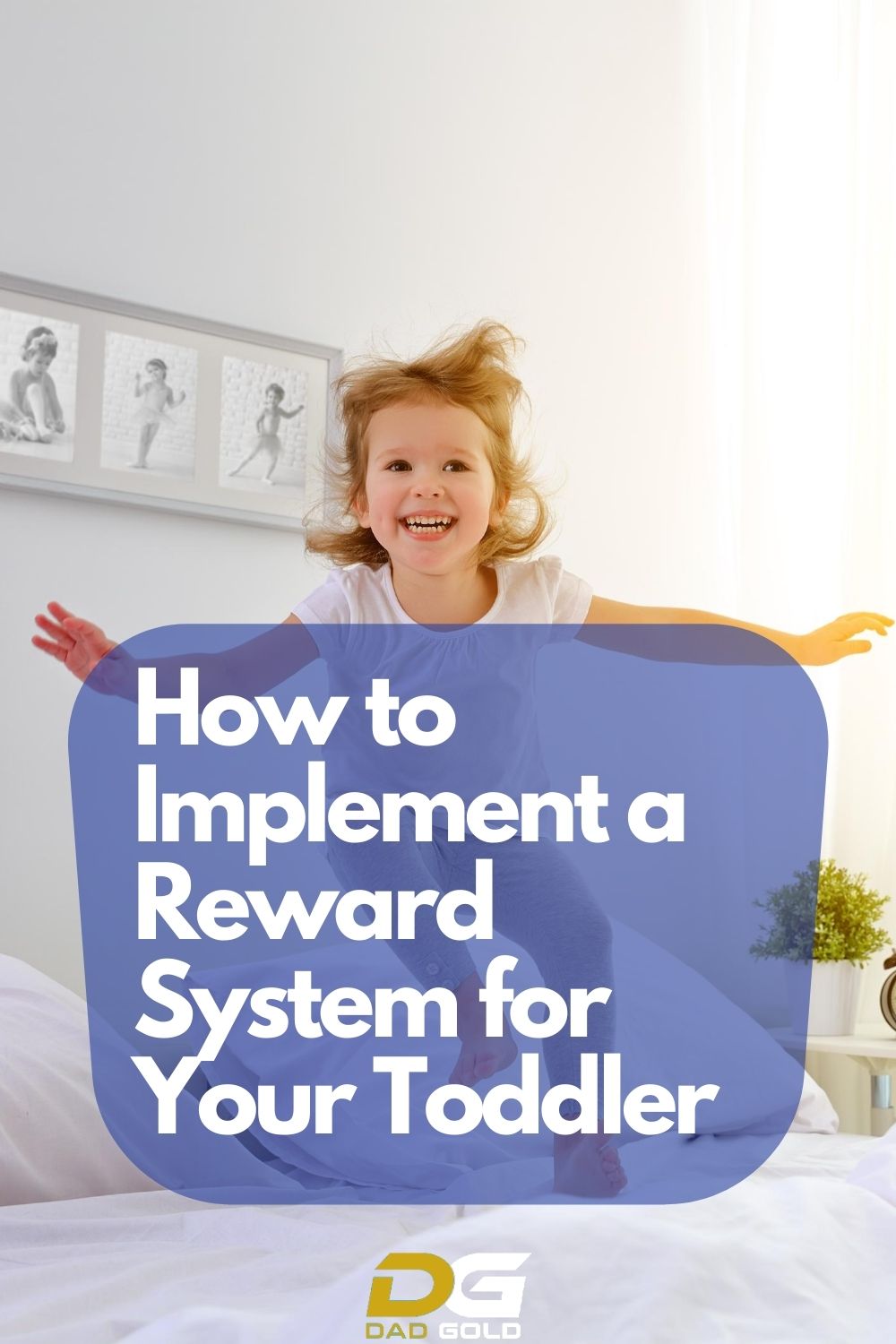Dealing with a child’s tantrum and occasional misbehavior is pretty hard.
They can get you to the point where your face turns red in anger, and before you know it, you are dragging them to the naughty corner where they can continue their wailing away from your working space.
This feels right for the 1, 2, 3… 37th time you have done it, but why isn’t it working?
Why are they getting worse by the day?
In this blog post, we discuss a more powerful way to teach your toddler the correct behavior—Rewards and the most effective reward systems for kids you can implement right away.
Because a reward is so much better than punishment, right?

Why Rewarding Toddlers is More Powerful Than Punishing
Most parents believe punishments are the best way to correct a child and instill indiscipline. This is because they were raised that way, and they feel that there is no better way.
The truth is, a well-planned reward system for kids is a much more robust method. Take a simple chart, for instance; seeing a rewarding chart entry is compelling!
-

Bold Male Pride – Baseball Trucker Cap Celebrating Masculinity
21,00 € Select options This product has multiple variants. The options may be chosen on the product page -

Dad Bod Appreciation Gift Mug
17,00 € Add to cart -

Dad Bod, Bad Jokes Structured Baseball Cap
26,00 € Select options This product has multiple variants. The options may be chosen on the product page
Rewards are a better strategy for teaching children good manners.
Here are 5 reasons why:
It Encourages Them to Be Better
Punishing older people for their wrongdoings might motivate them to correct their actions and improve their character, but it doesn’t apply to younger children. Sadly, consistent punishments deter their spirits and focus on weaknesses and mistakes, followed by battered self-esteem.
Rewarding your toddler for good behavior has a growing effect on their self-confidence and value. It helps them strive not just to do better but to become better individuals. Take a kid’s reward chart, for instance. They get the reward and see how good they have been over the last week, month, or year!
Child and adolescent psychiatrist Katarzyna Bisaga, M.D., Ph.D., says stressing positive behavior helps build self-esteem. They would begin to focus on their strengths, efforts, and achievements and stay motivated to learn new positive behaviors.
The Brain Registers Positive Feedback More Strongly
Just as the subconscious mind of adults processes positive affirmation and mantras and activates the law of attraction, positive feedback or rewards is registered strongly in the developing brain of younger children.
A study showed that the brain areas located in the cerebral cortex responsible for cognitive control were strongly activated in the face of negative feedback in older children and adults but more strongly activated when receiving positive feedback in the case of younger children.
Rewards appeal to your child’s logic better than punishments—their brains process positive feedback better than punishments.
This is why a reward is much more powerful!
It Strengthens the Parent-Child Relationship
The early life stage of your child is the perfect time to nurture a close relationship. Always taking away all their toys, privileges, and freedom would only build feelings of resentment and anxiety. These feelings will create a barricade between you and your child, making it hard for them to express themselves and confide in you.
As they grow older, they’d find it challenging to come to you for help whenever they get into trouble or make mistakes. Acknowledging your child’s effort would pull them closer to you because every soul loves to feel appreciated.
It Discourages Them from Acting Wrongly
While some parents feel that rewarding their child means that they ultimately have to ignore any wrong behavior, they fear that a reward system isn’t ideal for instilling discipline and good morals. They don’t understand that rewards are a positive way to teach right and wrong. When your toddle identifies the behaviors you praise them for, they’d distinguish it from the actions that didn’t earn them your encouraging smiles.
Powerfully rewarding your child discourages them from acting the wrong way. For example, you can say that it is more effective conditioning than punishments.
If your toddler acts out, try using some positive reinforcement techniques.
It Helps You Nurture Selected Behaviors
If you find that your toddler behaves in a particular manner that is wrong, instead of constantly correcting them with severe punishments, you can show your child the right way to act while using rewards as reinforcement.
People use rewards to potty train dogs, and even the military uses this method to train their hunter dogs to sniff out bombs—you too can rightly use the reward system to teach your child a particular habit or attitude.
Decide on the habits you want your child to learn, and begin to score them one after the other.
5 Ideas for Your Toddler Reward System
With rewards, you have to be consistent.
Set goals for yourself and dedicate your time, energy, and attention to seeing that your child follows the plan.
Work as a team, teach them what to do, and just like a football coach, watch them from the sidelines.
Give them new challenges because rewards help motivate and inspire, but don’t push them too hard.
Keep this in mind: Progress, not perfection.
Here are 5 reward systems you can easily work with:
Reward Jar
This system uses a transparent jar; every time your child does something commendable, you would drop a piece of paper (buttons or cotton balls too) inside the jar, and once the jar is full, your child gets a grand prize or small treat. It is popularly used because it builds anticipation, giving children something to work towards.
You can use this system to track up to two (2) good behaviors so that it doesn’t take a long time for them to fill the jar. That’ll ruin their mood and make them feel like you are not entirely serious about rewarding them.
Sticker Charts
This is an exciting way to reward your child—a kid reward chart – it works exceptionally well with toddlers (or preschoolers) simply because they love to collect beautiful arts and crafts. You can use the sticker chart to toilet train your toddler or get them to sleep at bedtime.
Sticker charts have been used to help kids with chronic health conditions adhere to treatment regimens. Sometimes, smaller rewards like stickers are the best way to have fun with your kid. As you begin, set new challenges and reward them more often to keep them on their behavior.
I can’t emphasize it enough, a reward chart for kids works!
Word of Mouth
It would cost you nothing to appreciate your child by speaking to them. Sometimes, it’s the little things. As much as your kid knows you love her, she wants to hear you say it. Kids want to know that you see the good in them, do not acknowledge them only in your heart. Express yourself to them.
Good job, baby girl. That was a lovely thing you did for John, you are so beautiful, and your heart is just as beautiful. Look at that smile!
Praising your child this way can go a long way in keeping them on the right track. They know that you appreciate and value them, and they would not trade it for anything.
Chore Charts
A chore chart is perfect if you would like to start your toddler out early on doing some chores and teach him some basic life skills. You can begin with age-appropriate chores like putting away toys and books, caring for the pet, helping to sort out the groceries, and taking a bath. Start by doing these things with them, then continue and track their progress with a chore chart.
You can find printable chore charts on Pinterest with relative ease.
When your child completes the chart, you can reward them with some sweets or 10-minutes of brain stimulation, dress-up, or cooking games on your phone.
You can double up by combining this chore chart with a reward chart! Talk about a positive reinforcement system for kids!
Bedtime Stories
If your child loves it when you read stories at bedtime, you can use this system to your advantage. Let them earn their stories by scoring the daily goals you set for them.
If you are worried about running out of great stories to tell, look here for some inspiration. Bedtime stories are also a great way to spend more time with your child.
Conclusion
Understand that reward isn’t a bribe. A reward system is just that – a system to reward your kids when they show good behavior.
When setting up a reward system, have a long talk with your child to explain why they need to be of good behavior.
In the simplest way possible, teach them about the values and see that you are doing excellent service. Else, your child might begin to put up an act to get the reward.
When purpose is not known, abuse is inevitable!
Myles Munroe goes here!


